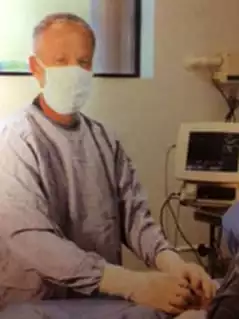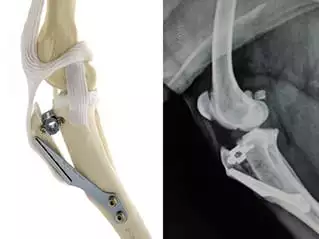Veterinary Services in Valparaiso, IN: Medical & Surgical Care
We provide a wide variety of medical care for your pet. We are constantly striving to improve and expand our services. Among those available are:
- Cat and Dog Vaccinations
- Laser Therapy for Surgery and Healing
- Cat and Dog Teeth Cleaning
- Spays & Neuters
- Specialty Breed Problems
- Digital Radiology / Ultrasound
- ICG Certified
- Orthopedic Surgery
- Tattoos / Pet Microchips
- Skin Problems / Allergy Testing
- Mobile Vet Visits Upon Request
- Heartworm Prevention, Testing & Treatment
- Medicated Baths & Dips
- Dental X-Rays
Is your pet in need of our services? Give us a call at (219) 462-5901 or request an appointment today!

We welcome school groups and organizations interested to participate in tours of our clinic. We also encourage clients to tour our facilities.
We currently utilize a Vet-Test blood analyzer to perform blood chemistries and complete blood counts (CBC’s). The advantage of having in-house capabilities is that we can obtain results quickly and accurately on the hospitalized.
Surgical Care
Surgery is performed daily, Monday thru Friday. When you call for a surgical appointment, you will be instructed about food restrictions and will meet with the doctor to discuss the actual procedure. In most cases pets are able to return home the same day. We have a trained surgical nurse, each patient is monitored continuously during anesthesia. Post-Op pain medications are used on all post-surgical cases.
We utilize a very safe, effective gas anesthetic called Isoflourane. It does cost more than most other inhalation anesthetics, but we feel that the quality and safety provided are worth the expense.

Cat and Dog Teeth Cleaning (shown left) is performed daily. We utilize a Cavitron (an ultrasound Device), followed by a tooth cleaning procedure. A Pulse Oximeter is used during the dental procedure to monitor your pet’s heart rate and breathing.
Spaying or Neutering Your Dog or Cat
Dogs – If you don’t plan to breed, spay or neuter your puppy. Spaying your female dog can help to prevent cancers of the reproductive tract, including breast cancer, and will decrease the incidence of reproductive infections. Neutering your male dog will prevent testicular cancer and can decrease the incidence of prostate problems. The incidence of certain behavioral problems has also been shown to be reduced when dogs are spayed or neutered. The decision to spay or neuter your puppy is one of the best decisions you can make for its well-being. The veterinarian can discuss with you its benefits and the best time to schedule the procedure.
Declawing Your Kitten
Since kittens are prone to sharpening its claws, you will want to provide it with a carpeted board or pole to use as a scratching post. Otherwise, your kitten will make great use of your furniture! However, you may decide to declaw your kitten. For an indoor cat, many veterinarians recommend declawing only the front feet, so that if the cat does get outside it has some mechanism of defense. For the outside cat, many veterinarians recommend avoiding declawing and instead recommend keeping nails trimmed or using “nail caps.” Whether or not to declaw your cat is an individual and personal decision that is best discussed with your veterinarian.
Cat and Dog Teeth Cleaning in Valparaiso, IN
Remember that pets need dental care too! Prevention is the key to helping pets maintain good oral health. The American Veterinary Dental Society recommends that pet owners follow three important steps:
Visit Your Veterinarian – Visiting a veterinarian is the key to ensuring the health of your pet’s teeth. A veterinarian will conduct a thorough physical examination of your pet as part of the dental evaluation.
Start a dental care routine at home – Removing plaque regularly from your pet’s teeth should be part of your pet’s home dental care routine. Ask your veterinarian about the procedure for brushing your pet’s teeth. Dog owners also may feed specially formulated dietary foods that help reduce the accumulation of plaque and tartar from teeth when the pet eats. Your veterinarian can offer more information on dietary options.
Get Regular Veterinary Dental Checkups – The family veterinarian needs to monitor the progress of your pet’s preventive dental care routine much the same way a dentist monitors your teeth. Regular dental check-ups are essential.
Once a pet’s teeth display the warning signs – bad breath, a yellow brown crust of tartar around the gumline, pain or bleeding when the pet eats or when you touch its gums – gum disease may already be present. For a professional dental check-up, call us at (219) 462-5901 today!
Orthopedic Surgery
Tibial Tuberosity Advancement Surgery (TTA)
Dr. Steve Violanti is now performing TTA surgery for dogs 35-160lbs that have ruptured or damaged their CCL. The surgery is an advanced procedure that is superior to the traditional lateral suture repair technique.
The cranial cruciate ligament of the knee joint (CCL, also known as the ACL) ensures that the tibia does not slip forward and out from underneath the femur. Rupturing this ligament is the most common knee injury in dogs, especially in larger breeds or dogs that are overweight. Without surgical repair, this injury can lead to severe joint degeneration, bone spurs, and even arthritis.
The goal of the TTA surgery is to relieve the load off the CCL and place it on the quadriceps muscle. The surgeon cuts the tibial tuberosity, and moves it forward to a position perpendicular to the tibial plateau. Then the surgeon places a titanium implant to hold the cut section of bone to the tibia. A spacer and bone graph material are then added to stablize the bone (as demonstrated in the photos below).

Companion Therapy Laser

Laser therapy is a course of treatment that actually stimulates the body to heal from within. Light energy is administered to the body and absorbed by the injured cells. The cells are then stimulated and respond with a higher rate of metabolism. This results in increased circulation from the body, an anti-inflammatory reaction, relief from pain and an acceleration of the healing process.
Disorders that respond best include:
| • Arthritic Conditions | • Wound Healing |
| • Intervertebral Disc Disease (IVD) | • Dermatological Conditions (Hot spots, etc.) |
| • Lick Granulomas | • Periodontal Disease |
| • Post Surgical Pain Relief | • Otitis (Ear Inflammation) |
| • Degenerative Joint Disease | • Gingivitis |
As the laser is administered, your pet will relax and enjoy, much like you, experiencing a good massage. The relief of pain will allow your pet to be comfortable, and any anxiety that your pet initially experienced will dissipate. Often during a therapy session, upset feline companions will start to purr, and some of our canine companions almost fall asleep!
I’ve been going to McAfee with my greyhound since rescued her 6 years ago. I drive there all the way from Chicago because I trust them. Dr. Brooke is wonderful and attentive to my Kitt. They’ve never suggested a test or treatment unless they felt it was necessary.
– Lianne S.


 VISIT OUR
VISIT OUR SHOP OUR
SHOP OUR VIEW OUR
VIEW OUR